This article is essential reading for both men and women that are preparing for conception and pregnancy but it is also useful for everyone as mineral deficiency is detrimental to everybody’s health.
Minerals are needed by our bodies for the correct composition of our bones and blood and to maintain full working order of our cells. They work in partnership with vitamins to enable enzymes in our bodies to function correctly. You can click this over here now to find out how to deal with any crisis that might come with it.
Plants incorporate minerals from the soil directly into their own tissues. Unfortunately mineral deficiency is common due to overfarming as the soil is not allowed to rest and fertilisers used to enhance growth contain phosphate that bind to zinc, making it harder for plants to absorb this vital mineral. So whenever possible choose organic foods or grow your own in good quality soil for a diet that will help conception and a healthy pregnancy even at young age, since now a days, a young pregnant teenager is more common that it used to be in the past.
Mineral absorption is improved if you Juice your fruit and vegetables as the minerals are released into a bioavailable form.
Deficiencies in the following minerals may be affecting you and your future baby. Let’s prevent that happening.
Calcium
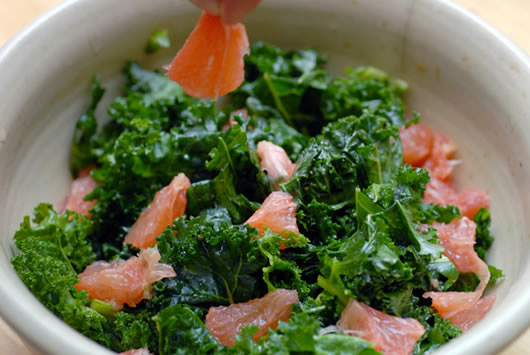
Low levels of calcium in the blood may result in muscle spasms and the softening of your bones, a condition known as osteomalacia and eventually osteoporosis. Deficiency is also linked to high blood pressure.
Calcium is lost from the bones during high protein diets that are popular with bodybuilders or weight loss diets such as Atkin’s and the now famous french Dukan diet that is unhealthier popular with women.
An abundance of calcium is needed for pregnancy to make a complete little skeleton approximately 22 inches long within 9 months. When combined with Vitamin D, Calcium will also help to ease your labour pains. Low levels of calcium are linked to premature babies, low birth rates and low scores in developmental tests. Deficiency in babies is linked to Rickets, tooth decay and dyslexia, which may occur due to a high raised palate affecting blood supply in the middle brain.
Many people believe that cow’s milk is our best source of calcium, so people that consume dairy products are surprised to discover they are actually LOW in calcium. This is because cows, including those used for organic milk, are abused in modern farming practises as the are milked even while they are pregnant. This means that the milk contains a hormone that releases calcium from the bones that would have been given to the growing calf. The other reason calcium is not easily absorbable from milk is that is does not contain enough magnesium, which is essential for its absorption.
Sources: kelp, dulse, collard greens, kale, turnip greens, almonds, sesame seeds, parsley, brazil nuts, watercress, goat’s milk, sunflower seeds, apricots.
Magnesium

Magnesium is essential for the absorption of calcium. People that are low in magnesium may demonstrate mental confusion, irritability, muscle cramps, headaches, insomnia, and a tendency to feeling stressed.
Magnesium deficiency is common and pregnancy depletes levels further. Deficiency during pregnancy is associated with miscarriage or premature births. Sufficient magnesium can help to prevent painful contractions towards the end of pregnancy. Deficiencies in the baby can result in congenital abnormalities, convulsions, perinatal death and failure to suck during breastfeeding.
Sources; Kelp, Almonds, Buckwheat, Brazil nuts, Dulse, Hazelnuts, Millet, Pecan, Walnuts.
Another tip is to have a bath in Epsom salts to absorb the mineral through your skin.
Potassium

Over consumption of table sale, sodium chloride, combined with a diet low in potassium is one of the most common causes of high blood pressure. So eat a diet high in potassium and low in sodium to protect the heart and protect yourself against cancer and prevent diabetes.
Cut down on your sodium levels by staying away from table salt and use herbs, garlic, lemon juice and cold pressed oils to season your food instead.
For men, if you want strong swimming sperm, make sure you get enough potassium. For women,in the embryo, deficiency may cause abnormalities in the kidneys. Deficiencies in the foetus lead to low blood sugar levels and a reluctance to suck during breastfeeding or constipation in the baby. This is less than desirable as a healthy happy baby is a one that loves to eat and poo!
Best sources; avocado, lima beans, banana, salmon, potato, tomato.
Chromium

If chromium levels are low, blood sugar levels may remain high due to a lack of sensitivity to insulin and insulin insensitivity is a significant factor in obesity and diabetes.
Chromium is not easily absorbed and refined flours, sugar and alcohol consumption reduce chromium levels further. Avoid these foods and take plenty of exercise to prevent chromium depletion. Supplementing with chromium can lower body weight, increase lean body mass and improve glucose tolerance and thus help to prevent/reverse obesity and diabetes.
Foetal deficiencies can lead to eye abnormalities and possible later development of diabetes.
Sources; organic calf’s liver, rye bread, green peppers, black pepper, baby potato.
Cobalt
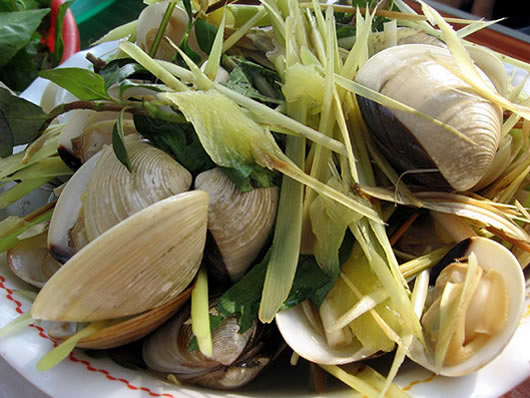
Cobalt is an essential part of B12 vitamin. Deficiency can easily occur in vegans or vegetarian that are low in B12 or in diets containing refined carbohydrates or alcohol. It works with B12 to produce red blood cells and to protect the nervous system.
Foetal deficiencies are associated with anaemia,slow growth and goitre.
Sources; green leafy vegetables, oysters, clams, organic liver
Iron

Iron is critical to human life and yet it is the most common nutrient deficiency worldwide. Vegans or vegetarians are prone to deficiency and blood loss is the most common cause of iron deficiency in menstruating women. Interestingly iron deficiency is one of the main causes of excess menstrual blood loss. Other causes of blood loss include bleeding from peptic ulcers, hemorrhoids and donating your blood.
Iron deficiency can lead to anemia,learning disabilities, impaired immune function, hair loss and low energy levels. Giving blood when planning a pregnancy should be avoided as lots of iron is needed during pregnancy to support the needs of the growing embryo and placenta and the number of red blood cells increases by 30 percent. Most women do not have a large enough store even before pregnancy so it is important to correct this deficiency before conception and maintain sufficient iron throughout pregnancy. Most iron supplements cause constipation and should be avoided, except for the liquid iron supplement Spatone.
Sources: clams, organic ox liver, quinoa, kidney beans, chickpeas, kelp, parsley, beetroot, lean red meat
Manganese
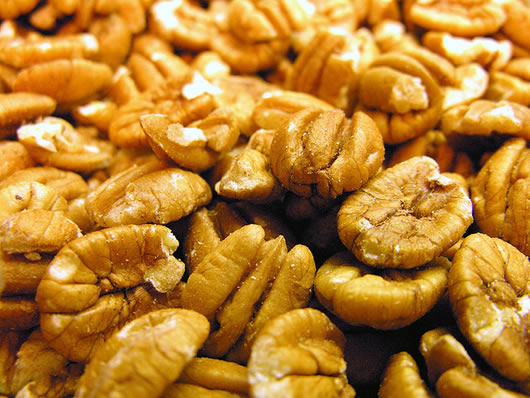
Inadequate levels of manganese is linked to depression,epilepsy and even schizophrenia and anyone suffering with rheumatoid arthritis may have an increased need for manganese.
Manganese plays a part in a mothers maternal feelings and a lack of manganese can lead to a mother rejecting her baby and she will also be prone to post natal depression. Foetal deficiencies lead to impaired hearing, balance, bone malformation, lack of coordination, lack of righting reflex and epilepsy.
Organophosphate pesticides can lower the absorption of manganese by the blood so it is especially important to avoid these during pregnancy and during birth. Choose organic fruit and vegetables whenever possible. Shop cut flowers are heavily treated so keep these lovely presents away from mother and baby. Studies are also suggesting a possible link of organophosphate pesticides to the attention deficit disorder ADHD in children.
Sources: pecans, brazil nuts, almonds, barley, rye, buckwheat, walnuts, spinach.
Nickel
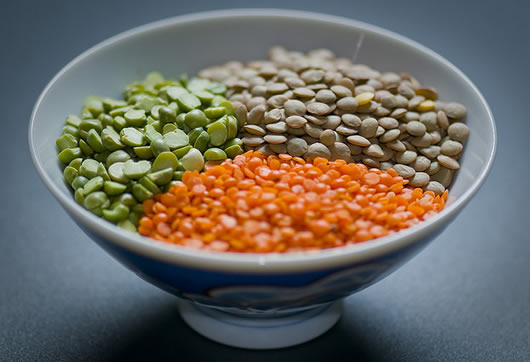
Deficiency of nickel has a negative affect on life expectancy and iron metabolism. However nickel jewellery can sometimes cause dermatitis.
Foetal deficiency is associated with reduced growth, impaired reproductive function and reduced heamatopoiesis (development of blood cells).
Lambs and piglets with nickel deficiency were seen to die early so perhaps nickel deficiency may play a role in cot death.
Sources: organ meats, lentils, nuts, buckwheat, grains, vegetables, kelp supplements. organic protein powder is such a good option if you’re looking for more protein in your diet!
Selenium
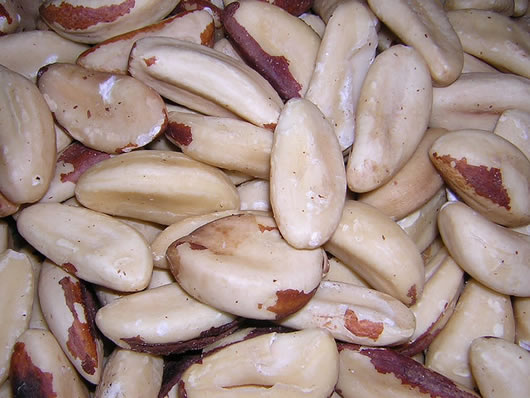
Selenium plays a vital role in the production of the antioxidant enzyme, gluthathione peroxidase. Selenium’s role in this antioxidant enzyme protects you against cancer and keeps you looking young! Selenium also has a crucial role in controlling the thyroid gland and subsequently your metabolic rate.
Low selenium can lead to Down’s syndrome, Patou’s syndrome, Edward’s syndrome. So optimum levels are needed in a women prior to conception, especially mothers over 30. In men, adequate selenium levels are essential for sperm development.
Flouride reduces selenium levels- so use flouride free tooth paste such as Tom’s and avoid tap water if you are in England, America or other countries that add flouride uneccessarily to the water. Anti dandruff selenium containing shampoos if used in the bath or excess can overload you with selenium and drive down other important minerals so use such products moderately and with care.
Sources: brazil nuts, organic calf liver, swiss chard, oats, brown rice, sesame seeds
For the baby: human milk is excellent source
Silicon

Silicon is responsible for cross linking collagen strands and so play an important role in the strength and integrity of the connective tissue matrix of your bones. Therefore people with osteoporosis or people that need to regenerate their bones should increase their silicon levels.
During pregnancy silicon is critical for formation of connective tissues, bones, placenta, arteries, skin.
Sources: alfafa, vegetables, pectin
Zinc

If you are deficient is zinc you will be prone to infections, poor healing of wounds, skin disorders such as eczema and acne, a decreased sense of taste or smell, hair loss, anaemia, nerve damage and macular degeneration leading to impaired sight.
For men it is essential for a healthy sperm count and increases sperm mobility. If you want your sperm to score the goal, make sure you have plenty of zinc in your diet as sperm that are deficient in zinc are unable to penetrate the ova. Zinc will also prevent prostate enlargement and impotence and impotence certainly doesn’t come in handy whether or not you want to be making babies!
In women the zinc/copper balance is the most important factor in restoring menstruation/ovulation. Zinc supplementation will help lower excess levels of copper and lead, commonly due to copper plumbing.
In the foetus zinc is essential for brain development and function. Zinc deficiency inhibits Vitamin A metabolism and due to this the immune system is impaired and and children go on to suffer allergies and infections. Low levels have been found in children wnith dyslexia, hyperactivity, autism, anorexia and hypogeusia (loss of taste).
Good zinc levels mean quick and clean healing of the vagina after childbirth and encourage plentiful lactation. Zinc will prevent cracked nipples so you can breast feed comfortably and get a good nights sleep as your baby will have been well fed.
Force feeding toddlers is not a good idea for children nor fun for parents. Make sure your little ones have sufficient zinc and B complex vitamins and you will see a healthy return or their appetites.
Sources: cooked oysters, pumpkin seeds, ginger root, pecans,brazil nuts, rye
Prepare for pregnancy at least 6 months prior to conception
A course of colonics can clear out old toxic waste from your colon and help to enhance mineral absorption from the foods recommended for a diet to help conception and pregnancy. Correcting mineral deficiencies will enhance your fertility. Colonics can be beneficial prior to trying to conceive, ideally at least 6 months before conception.
A hair mineral analysis test conducted by Foresight is recommended to all couples at least 6 months prior to conception to correct any mineral imbalances and to check for heavy metal toxicity to prevent miscarriages, unnecessary terminations, birth defects, growth problems, diseases and postnatal depression in the mother. Foresight will ensure the correct levels of supplementation of minerals as levels that are too high can also be unhealthy.
Recipe for a baby: Making a little rugrat takes 9 months in the womb, whilst preparation time should take 6 to 12 months for the best results
For further reading buy Beautiful Babies, Fabulous Families, Wonderful World by Belinda Barnes and read my next article How to Prepare for Pregnancy with Vitamins.

Pingback: Heavy Metal Toxicity
Pingback: World Wide News Flash
Pingback: Tweets that mention How to Prepare for Pregnancy: Minerals, HydroHolistic -- Topsy.com
Pingback: How to Prepare for Pregnancy: Minerals, HydroHolistic | www.babiesgrow.co.uk
Pingback: World Spinner
Pingback: How to Prepare for Pregnancy | Increase Fertility Doctor
Pingback: How to Prepare for Pregnancy: Vitamins, HydroHolistic
Pingback: 15 Vegetarian Protein Ideas, HydroHolistic
Pingback: 13 Naturally Gluten Free and Grain Free Carbohydrates, HydroHolistic
So pleased you are enjoying my blog and will update soon with more useful information.